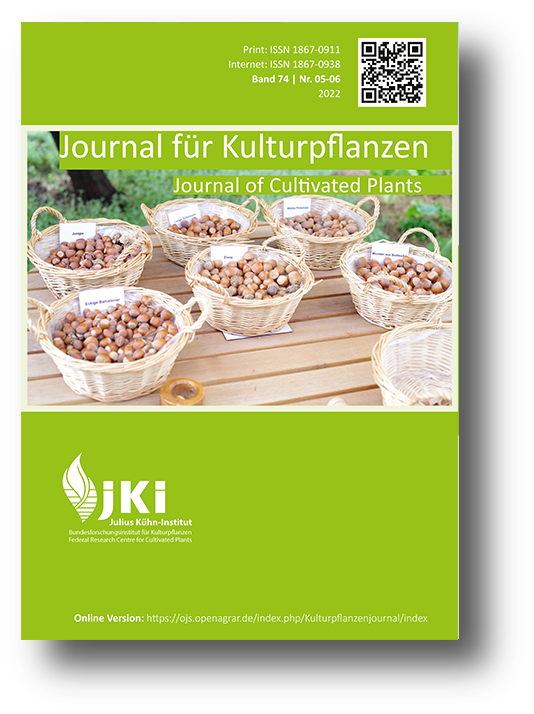Phosphine against arthropods in stored product protection with special consideration of the resistance problem worldwide and in Germany: A review article
DOI:
https://doi.org/10.5073/JfK.2022.05-06.01Keywords:
resistance, stored product protection, phosphine, resistance preventionAbstract
Fumigation with phosphine (PH3) is one of the most effective ways of control insect and mite pests in stored agricultural products. However, the excessive and incorrect use of this active ingredient has led to the development of resistant insects towards phosphine fumigation, which makes it much more difficult to control an infestation and, in the worst case, can lead to the total loss of the stored products. In case of an insufficiency of the fumigation, the treatment usually continues until the controlling of entire insect pests in the stored commodities. The strategies to avoid development of resistance to phosphine are already part of the good practice in fumigation activities in many countries. In Germany, no insects are currently known that are resistant to phosphine in stored products. To ensure that the risk of development and spread of resistance among insects remains low in Germany, the application rules and regulations for fumigation and storage of agricultural products must be fulfilled. In this review article, the current world-wide situation and the possible factors for a development of resistance to phosphine and its prevention in Germany are discussed.
Downloads
Published
Issue
Section
License
Copyright (c) 2022 Deniz Baltaci, Dagmar Borchmann

This work is licensed under a Creative Commons Attribution 4.0 International License.
The content of the journal is licensed under the Creative Commons Attribution 4.0 License. Any user is free to share and adapt (remix, transform, build upon) the content as long as the original publication is attributed (authors, title, year, journal, issue, pages).
The copyright of the published work remains with the authors. The authors grant the Journal of Cultivated Plants, the Julius Kühn-Institut and the OpenAgrar repository the non-exclusive right to distribute and exploit the work.







